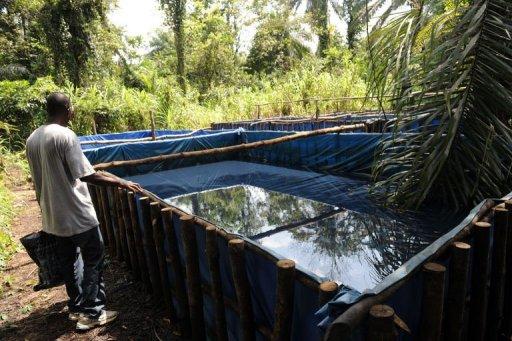
NIGERIA'S OIL CRISIS

Advisers to Nigeria's president-elect Muhammadu Buhari are in talks with multinational oil companies in an effort to alleviate fuel shortages that have brought business in Africa's largest economy to a virtual standstill.
Mr Buhari, who became the first opposition candidate in Nigeria's history to unseat an incumbent president at polls in late March, is due to be sworn into office on Friday in the middle of one of the worst fuel crises the country has experienced.
Guaranty Trust Bank, a leading Nigerian bank, announced it would be shutting early on Monday because it had insufficient diesel to run generators across its branches. Airlines have cut back internal flight schedules, international flights have been rerouted due to the lack of aviation fuel, and three of the country's mobile phone operators have warned that their networks will be degraded unless there is an immediate remedy.
The crisis has crept up in recent weeks amid wrangling by national fuel marketers over more than $1bn in alleged outstanding payments by the outgoing administration of President Goodluck Jonathan.
A last-minute deal late on Monday with the marketers' association could see fuel supplies improving steadily "over the next seven to 14 days", according to a senior executive with one of the companies, who claimed arrears to January amounted to about $1.5bn. But he said Nigeria has only about two days of fuel in stock.
A spokesman for the finance minister, Ngozi Okonjo-Iweala said the marketers were demanding a balance of 200 billion naira ($1bn). The minister wanted the claims verified first "but the marketers are kicking against this and saying they must be paid or they won't supply".
The shortages have been compounded by a series of strikes by tanker drivers — over the non-payment of haulage fees — and at the state oil company, the Nigerian National Petroleum Corporation.
Nigeria pumps about 2m barrels of oil a day and is Africa's leading producer. But it imports more than two-thirds of its domestic fuel requirements because of the poor state of its four ageing refineries. Private investment in refining has been stymied by the artificially low pump price of petrol, which the government subsidises at the cost of billions of dollars a year.
The subsidy, which in the past has soaked up about a quarter of the federal budget, is notoriously inefficient and has been the target of alleged multibillion-dollar fraud, according to a string of officially sponsored audits and parliamentary investigations.
Mr Buhari, a former military ruler, made stamping out such fraud the centrepiece of his campaign and some of the marketers fear he will drag his heels before settling arrears. "The real issue here is that the marketers see this as a way of blackmailing the incoming government. A lot of them are associated with those leaving power and after Friday they will have no hold," a senior adviser to Mr Buhari told the Financial Times. He said the incoming administration was talking to the oil majors about bringing in cargos as a short-term remedy after the handover, but he said there was a limit to how far they could lock in deals before formally taking office.
The crisis would be a "distraction" from day one, he added, but it would also allow the new government to review the subsidy regime and consider deregulating the market as a long-term solution. "These challenges present an opportunity to break the mould and do things differently," he said.
Meanwhile, official power grid production has dropped to about 1,300 megawatts, about half its normal output, as a result of a cut-off of gas supplies to power plants because of the strikes. The impact on the economy, already slowing as a result of the fall in world oil prices since last year, is expected to be severe, according to analysts.
Aliko Dangote, Africa's richest businessman, told Thisday newspaper he had been forced to shut down operations at several of his cement plants, and had rushed to Abuja, the capital, at the weekend to impress upon Mr Jonathan the urgency of the situation.
"I reminded him that he had won praise at home and abroad for putting the country first by conceding defeat after the elections, but could squander all the goodwill if he failed to do anything to reverse this unprecedented energy crisis," he said, in a rare shot across the bows of government.
ft.com





